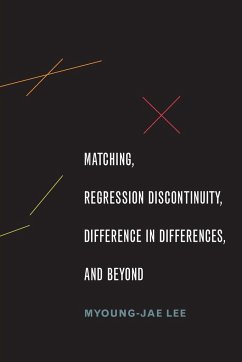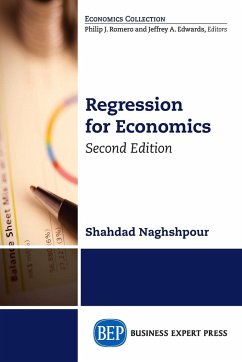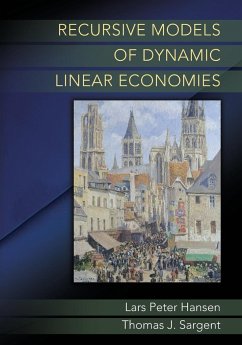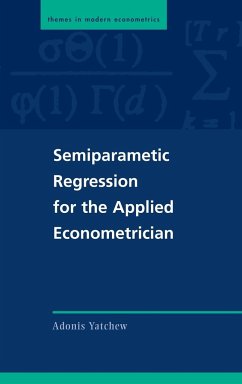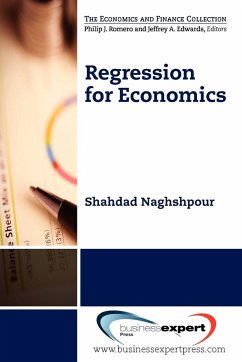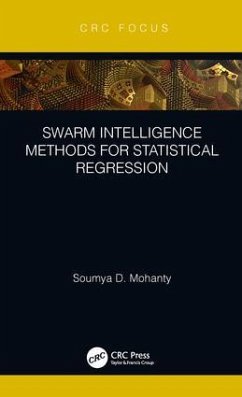Nicht lieferbar
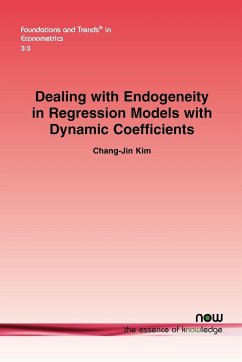
Dealing with Endogeneity in Regression Models with Dynamic Coefficients
Versandkostenfrei!
Nicht lieferbar
Dealing with Endogeneity in Regression Models with Dynamic Coefficients presents a unified econometric framework for dealing with the issues of endogeneity in Markov-switching models and time-varying parameter models. While others have considered estimation of simultaneous equations models with stochastic coefficients as a system, we focus on the LIML (limited information maximum likelihood) estimation of a single equation of interest out of a simultaneous equations model. The control function approach, which is an econometric method used to correct for biases that arise as a consequence of se...
Dealing with Endogeneity in Regression Models with Dynamic Coefficients presents a unified econometric framework for dealing with the issues of endogeneity in Markov-switching models and time-varying parameter models. While others have considered estimation of simultaneous equations models with stochastic coefficients as a system, we focus on the LIML (limited information maximum likelihood) estimation of a single equation of interest out of a simultaneous equations model. The control function approach, which is an econometric method used to correct for biases that arise as a consequence of selection or endogeneity, will be the main tool in dealing with the problem of endogeneity throughout this monograph. While the approach has been extensively applied to the sample selection models and disequilibrium models in the micro-econometrics literature, its application in the time-series econometrics literature is relatively new. The basic idea behind the control function is to model the dependence of the disturbance term on the endogenous variables in a way that allows us to construct a function such that, conditional on the function, the endogeneity problem in the regression equation of interest disappears. Dealing with Endogeneity in Regression Models with Dynamic Coefficients is organized as follows. Section 2 reviews the basic issues associated with the control function approach, which is the main tool for dealing with endogeneity in this monograph. We investigate these issues within the framework of constant regression coefficients. Section 3 considers estimation of Markov-switching models with endogenous regressors. Section 4 deals with estimation of a Markov-switching model, where regressors are exogenous or predetermined and the Markov-switching coefficients are correlated with regression disturbances. The issues of endogeneity within the time-varying parameter models are discussed in Section 5. Finally, Section 6 provides concluding remarks.




